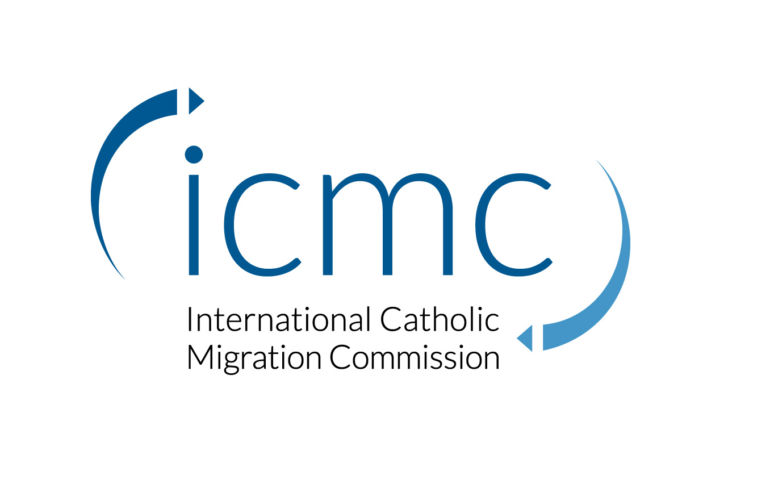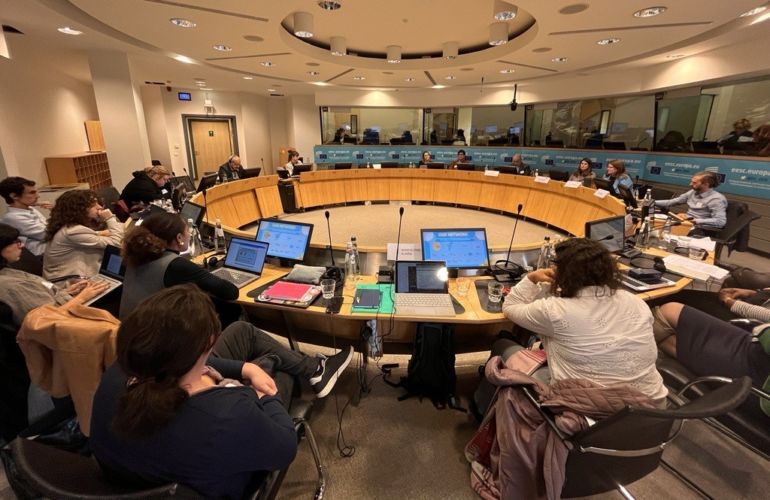ICMC Secretary General Celebrates 50 Years of Priesthood
On 27 May 2022, Msgr. Robert J. Vitillo, Secretary General of the International Catholic Migration Commission (ICMC) for the past six years, celebrated the 50th anniversary of his ordination as a priest. In this interview, Msgr. Vitillo shares the experience he gathered over these five decades of service to children, migrants, refugees, and those affected by HIV/AIDs.
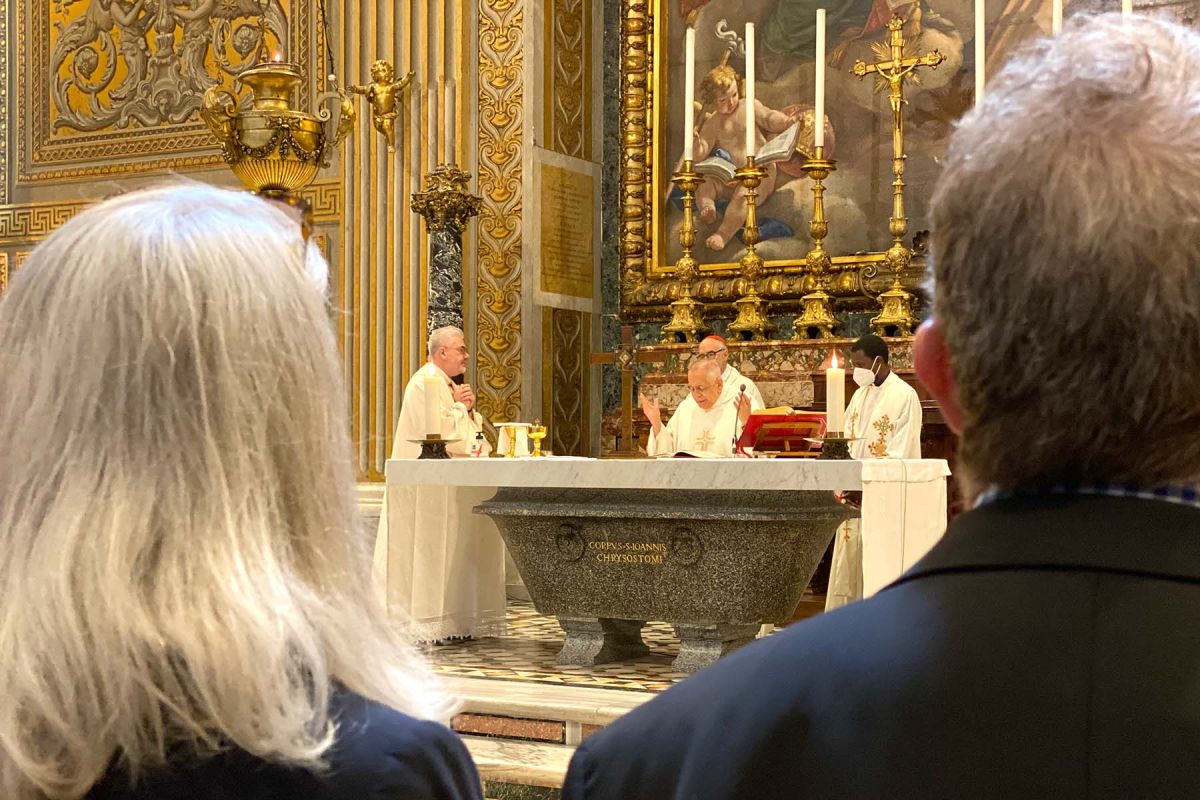
ICMC Communications: On 27 May, you celebrated the 50th anniversary of your ordination. How did you first decide to become a clergy member?
Msgr. Robert J. Vitillo: I always wanted to become a priest. I grew up in an Italian parish in New Jersey that served Italian immigrants. It was a very close-knit group of people, and it was the center of our socialization. We had excellent priests there.
I was an altar boy from a very young age and always felt I had a calling. Of course, as I matured, I had to discern that more carefully, but it was within me for a long time. My family were active Catholics who gave me a good example, but most of all, I saw the example of the priests serving people, and I wanted to pursue a similar service.
Even though my grandparents had immigrated to the U.S., migration was still a theme in our family. We thought that as immigrants, we needed to do things well and work hard. It wasn’t until my generation that most of my family members could access higher education, and education was a prime goal for us. So was hard work. We saw our parents and grandparents working so hard to succeed and ensure their children were well taken care of.
Even though my parents were born in the U.S., we talked about two kinds of people growing up: Italians, which we were, and Americans, which everybody else was. The value of faith in our lives was very important, as was respecting elders and reaching out to take care of people in need in our family and the larger community. I find these values in the migrant communities I work with.
Thinking back at your childhood as part of a migrant community, do you see similarities with migrants and refugees? Do you recognize some of the same values that you saw in your own family?
Absolutely. Even though my parents were born in the U.S., we talked about two kinds of people growing up: Italians, which we were, and Americans, which everybody else was. The value of faith in our lives was very important, as was respecting elders and reaching out to take care of people in need in our family and the larger community. I find these values in the migrant communities I work with. My youth was good preparation for service to the Church. As it happened, I was assigned to work in the diocese’s local Catholic Charities agency, which led me even more towards serving those most in need.
Once you decided to become a priest, what education did you pursue?
I attended a preparatory school in high school, where I received a classic education that included Latin and Greek courses. It was a good basis for me as I prepared to study further.
Then I struggled because I wanted to be both a medical doctor and a priest. I decided to study theology first, then medicine. I studied theology and classical languages for my university degree, then studied theology at the graduate level. In my last year, as my time to be ordained as a priest approached, I was assigned to work in Catholic Charities, which sent me to study social work. That brought everything together for me. I never went to medical school, but I pursued clinical social work, psychotherapy, and management courses. Social work approaches humans from a perspective that many medical training programs often don’t. It helped me see the whole person as I was trying to reach out and help people.
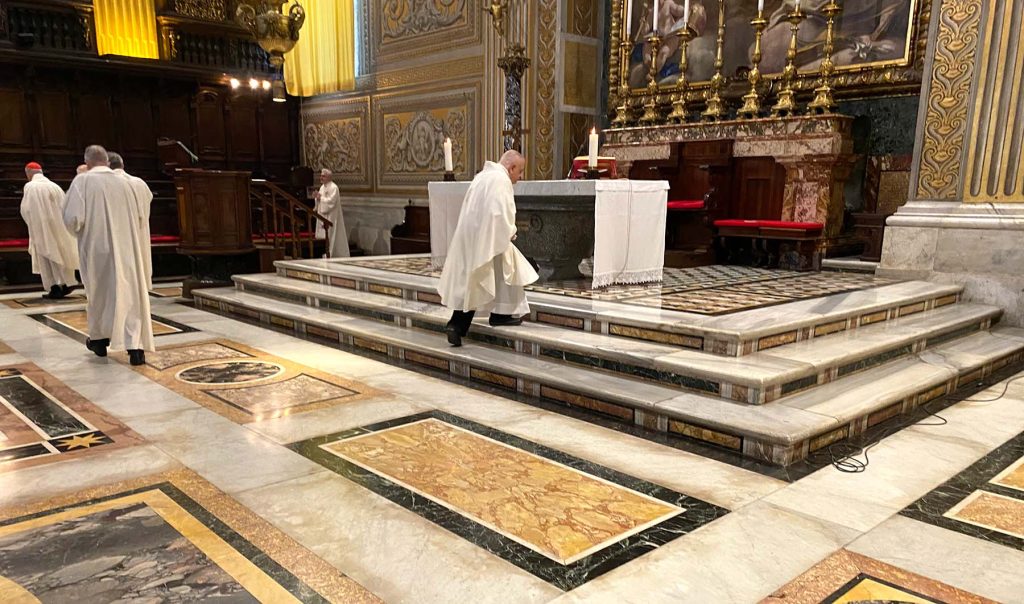
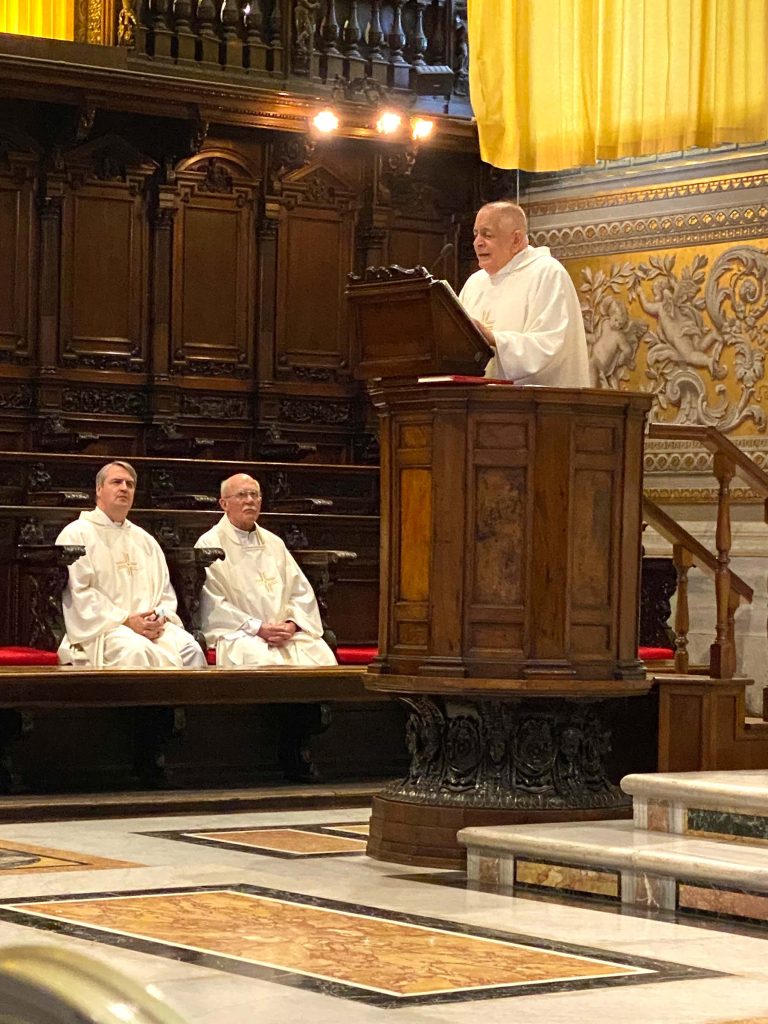
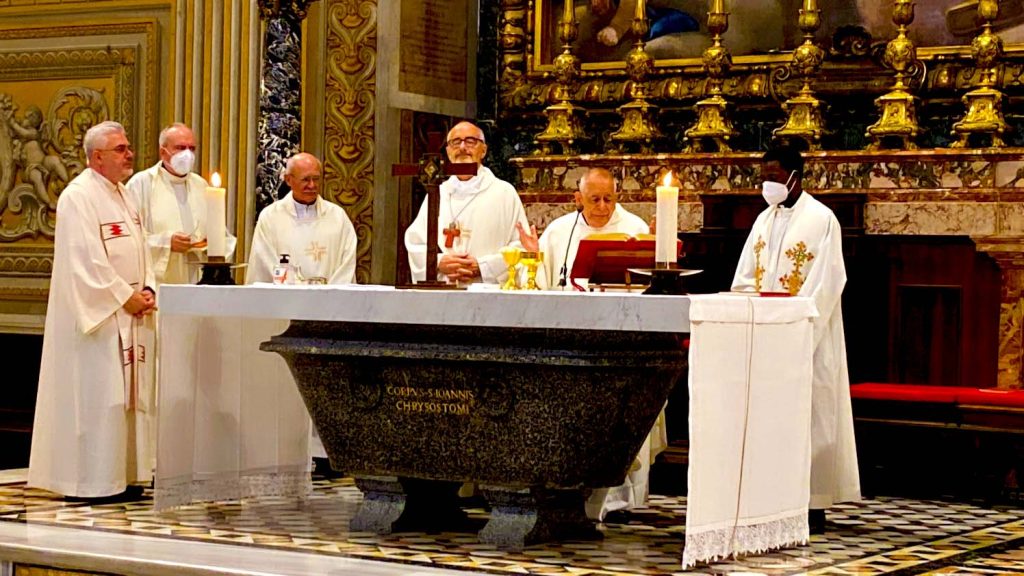
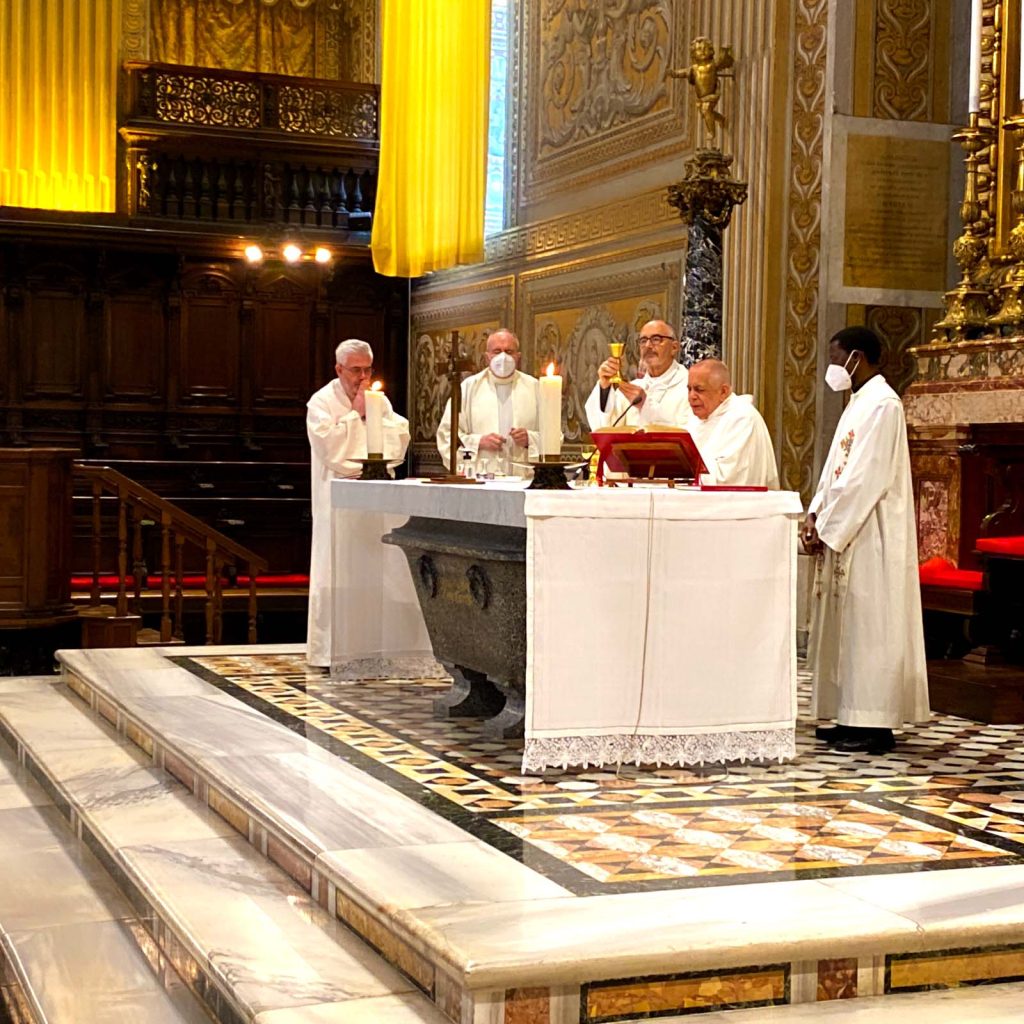
Do you have any examples of how your social worker training helped you work with migrants and refugees?
Even before I was working with migrants and refugees, I worked as a family counselor. I witnessed not only people’s psychological and emotional problems but especially the problems they had in their family relationships. I also saw how much a person’s social background could influence some of those problems. In many ways, low-income clients and those who didn’t have access to higher education struggled even more than those with better opportunities. That showed the social influence on emotional problems and situations.
Then I was assigned eventually to become the director of a residential treatment center for children, emotionally troubled children. I spent several years living at the center, directing it, but also doing clinical work with some of the children. I sometimes became a replacement father figure to compensate for the lack of parenting that some of these children faced. It showed me the direct honesty of children, and in many ways, they had diagnosed me more than I diagnosed them.
At the end of the 1970s, I was assigned to be the head of Catholic Charities and to serve as the diocesean resettlement director. That’s when I started my work with refugees. Speaking of social factors, this is when I really learned the effects of war, conflict, lack of rule of law, prejudice, discrimination, and threats of violence that people had gone through before they escaped their countries and sought resettlement in another country. They had faced such terrible situations, yet I watched their determination and hope to make a better life for themselves and their children.
What touched me most was the refugees’ strong determination – and their hope that they would make it work despite not speaking English […] That taught me the privilege of the life I had been living, but it also taught me to be sensitive to the fact that many people did not have those privileges.
That’s when I was first in contact with ICMC, which was processing the refugees for resettlement in the U.S. ICMC would call to inform me about proceeding to the airport at a specific time to greet a refugee family. ICMC was our point of contact in terms of people’s arrivals. The staff and I would have to find a place for them to live, help them learn about life in the U.S. We also recruited volunteers who could mentor them to find jobs, and help them integrate into their new communities.
At that point of time, in our diocese , we were resettling Vietnamese, Laotian, Cambodian, Eritrean, Ethiopian, and Eastern European refugees. We had Ukrainians, Poles, and Romanians coming through. Cuban Marielitos (Cuban refugees who fled to the U.S. by boat) also started coming in the early 1980s.
What touched me most was the refugees’ strong determination – and their hope that they would make it work despite not speaking English. Many of them didn’t know what life in the U.S. was like. I remember bringing a Cuban Marielito refugee family for their first visit to a supermarket. They were amazed at the vast selection of food products and things, and it was hard for them to decide what to get because there were so many choices for fruit juice, or cleaning fluid, or anything else. That taught me the privilege of the life I had been living, but it also taught me to be sensitive to the fact that many people did not have those privileges. It also made me want to help them realize that they didn’t have to be attracted to all these goods and that they had a very special relationship within their families that they should nurture and continue to grow.
One of our challenges at that time was that Southeast Asians were not accustomed to digesting milk products, yet Americans pushed milk on them. We had to tell the volunteers to hold off on dairy products. We tried to orient both sides to help them experience the best of each other. We had to help host Americans realize that they were not the only ones giving but that the refugees had something to offer them as well. The refugees often wanted to respond with small gifts or baked goods to show their appreciation. We had to help the Americans realize that they should allow that, and that integration is a mutual interchange.
Do you have examples of how the resettled refugee communities you worked with gave back to their new communities and enriched them in the longer term?
My first direct experience working with ICMC was in 1981, when I was asked to go to the Bataan refugee processing center in the Philippines. Many Southeast Asian refugees were brought there to finish their processing for resettlement and to be trained in cultural orientation and the English language before leaving for the U.S. or another country. I was asked to help design the cultural orientation training since I knew what it was like to resettle these people in the U.S.
One night in the camp, the refugees were putting on a show, and I was sitting next to a Cambodian man. A young woman was dancing, and I told him, “She dances very beautifully.” He said, “She’s my daughter. I lost everybody else in the family. She’s the only one who’s left.” There was pain there. I could hardly stop the tears from flowing, yet there was such hope and determination that this would work, even though only two of them were left. He brought that determination with him and made sure that when he was resettled to the U.S., they were successful and would pay back in the sense of being thankful for whatever hospitality they received.
I was assigned a Vietnamese translator for the cultural orientation classes I was leading during my time at the Bataan refugee processing center. The translator was an engineer by profession. He told me that he had tried to escape Vietnam ten times and had been caught and sent back each time. Although he was not a Christian, on his tenth attempt to escape, he promised Jesus that he would convert if he got out. He did get out.
He asked me if he could be resettled in my area in the U.S. I said, “I can’t promise that. I can make the request to ICMC, but they may not be able to let that happen.” By God’s will, he did come to our diocese, and he immediately asked me about conversion. I said, “I think you need to settle here first. Then you should help other refugees because you’re well educated. I’m sure you’ll be getting a good job quickly. I think you should help those who need more help to resettle here.” Once he was settled, he sponsored another refugee family. Later, he sought out another priest and took lessons in the Catholic faith because he did want to become a Catholic, even though I had assured him that we didn’t expect that from him at all.
I saw that kind of reaching out to other refugees and migrants. I also observed the refugees’ feeling of loyalty to the U.S. because they had been. welcomed there and had been given opportunities they would not otherwise have experienced.
When did you become involved in the fight against HIV/AIDS?
I was the head of Catholic Charities agency in my diocese from 1979 to 1986. Then I was asked to transfer to Rome, to the headquarters of the International Catholic Charities, Caritas Internationalis, to serve as their chief of service for Europe and North America.
We began to see the effects of the HIV/AIDS pandemic in Africa in 1987. Before that, many thought that HIV and AIDS only affected the “rich” people in Europe, North America, or Australia, but not the rest of the world. As we studied the situation, we saw there already were significant epidemics in Africa and in Haiti as well. Within Caritas, we started raising funds to support response programs in Africa. Unfortunately, there was no treatment at the time, so we could only try to help people die with dignity and help their families care for them.
That year, Caritas Internationalis made the HIV/AIDS response a major action priority, and I was asked to take responsibility for that programming. I knew we would have to do a lot of training in the Church for people to understand this epidemic and know whatever scientific information we had at the time. There was no treatment, and there was no vaccine. There still is no vaccine for HIV. I needed special training. I was sent to the Harvard Institute in Salzburg, Austria, to be trained on HIV and AIDS. Then I began to work on these training programs in all parts of the world.
Many thought that HIV and AIDS only affected the “rich” people in Europe, North America, or Australia, but not the rest of the world […] We started raising funds to support response programs in Africa. Unfortunately, there was no treatment at the time, so we could only try to help people die with dignity and help their families care for them.
We didn’t have the internet in those days, so I went to Geneva every six months for an update meeting by the World Health Organization’s Global Program on AIDS. At that point, I worked with Sister Maura O’Donohue, an Irish, Medical Missionary of Mary, who had also been trained as a medical doctor. We did a lot of this training together over the years, and we would anticipate where the spread of the epidemic would be increasing. We already had organized many trainings and supported development of AIDS responses in Africa, but we knew that the epidemic also would affect Asia. So we scheduled visits there and started training in that region and in other parts of the world, including Eastern Europe, Latin America, and Middle East. It was a great privilege to be so involved and to help the Church respond with much pastoral sensitivity and based in as much scientific knowledge we had in relation to the HIV pandemic in those days.
We also became involved in advocacy, especially after treatments became available to strengthen people’s immune systems so they would not succumb to the deadly diseases that people with AIDS might develop. Those treatments were only available for people who had the money to pay for them; at that time, they cost more than U.S. $30,000 a year. We started advocating for access to such medicines for poor people in low-income countries. We were very involved in advocating for the creation of the Global Fund to fight AIDS, Tuberculosis and Malaria, which raised funds at the governmental level to support developing countries for the purchase of such medications and appropriate diagnostic tools.
What are some challenges you faced while working on HIV/AIDS?
First, we faced a lot of misunderstanding and misinformation about HIV and AIDS. I thought about that as we worked on COVID more recently because there is still a lot of misunderstanding about COVID and vaccinations. Some of the misunderstanding was due to a lack of knowledge. There also were judgmental attitudes stemming from the fact that the principal means of spreading the disease was sexual. There was an idea that people affected by HIV/AIDS were not leading good lives and an erroneous belief God was punishing them. In many places, local cultures promoted the idea that someone had put a curse on the people with HIV.
We had to be sure that the education we provided was based on scientific evidence that we could explain it in a very simple way. This was the base of the training manuals we developed to teach people without a medical background. Many of them were priests, religious Sisters, and lay pastoral workers. We helped them get basic knowledge in a simple way and urged them to overcome prejudice and discrimination. We always invited people living with HIV or who had lost family members to HIV to give testimony because that was the best way to fight this kind of discrimination.
During your years as Head of Service for Europe and North America at Caritas Internationalis, the fall of the Soviet Union led to many global changes, including the creation of many new countries. What memories from that time strike you as important today?
As the downfall of the Soviet Union came, I was involved in helping to set up many new Caritas organizations in these new countries. That was something I didn’t expect. When I arrived at Caritas Internationalis, 20 countries in Europe had national Caritas offices, the vast majority in Western Europe. By the time I left, there were 45. It was a whole new area of learning for me, but also an opportunity to teach people about the social work of the Church.
In those days [under Soviet rule], the Church was suffering and persecuted. It was restricted to performing religious services, and didn’t get involved in the kind of social services that we did at Caritas. We had to train them on how to do that.
I left Caritas Internationalis for the U.S. Conference of Catholic Bishops to direct an anti-poverty program that supported community organizing among underprivileged populations so they could bring about social change in their own communities. […] Through policy research, we could see how municipal and State governments sometimes didn’t properly apply existing laws and protections for poor and other persons with vulnerabilities. We also saw how structural racism or discrimination affected people in poor communities.
As Catholics, we believe that the Church has a mission of worship, service, and education. This ancient belief was re-affirmed and made more profound , when all the bishops of the world met in Rome during the Second Vatican Council. In many ways, that event was an opening of the Church to the world and the realization that we should be in the world, not apart from it, so that we could serve and help educate people. But in Eastern Europe, most bishops were not allowed to go to the Second Vatican Council. They didn’t go through this process of thinking and discerning, and they didn’t have access to the documents that the bishops of the world formulated during that Second Vatican Council. The first step was to share that information with the bishops in Eastern Europe.
We helped the bishops, clergy members, and others involved in the Church’s work at the national and local levels understand the transformation of the Catholic Church that occurred during the Second Vatican Council. Our training programs also helped them develop skills to understand the social factors that lead to people’s behavior, wants, and needs. We taught them how to help at a community level so that the dignity of those they supported could be restored and they could begin to develop in a much more integral way.
I remember going to some very poor situations; the Church was very poor. I remember doing some training in Latvia where it was freezing cold. It was an experience to know the suffering that so many people experienced every day. I only had to suffer with them for a short time, but it was certainly a very renewing and strengthening situation for me to be engaged in that, then to see them grow and begin serving others. I had another experience of this recently with Caritas in Ukraine. During the current war, some American adoptive parents who had finalized their adoptions in Ukraine could not get out with their children. I reached out to Caritas, and they were able to find the children and the families and help them get out. I told the Father in charge of that Caritas organization that I had been involved in helping to start that organization and that it was very inspiring for me to witness how effective they had become, even though I was so sorry to see what they were facing in the midst of war.
Following your time in Rome, you returned to the United States.
In 1995, I left Caritas Internationalis for the U.S. Conference of Catholic Bishops to direct an anti-poverty program that supported community organizing among underprivileged populations so they could bring about social change in their own communities. Working with these groups of people and seeing their determination was a very special experience. Through policy research, we could see how municipal and State governments sometimes didn’t properly apply existing laws and protections for poor and other persons with vulnerabilities. We also saw how structural racism or discrimination affected people in poor communities. The poor people themselves proposed and implemented ways to change such unjust practices and situations.
In 2005, I was asked to come back to Caritas Internationalis as Head of their delegation to the United Nations in Geneva, and as their special advisor on health. Then, in 2016, I was asked to serve as the Secretary General of ICMC.
I think the history of ICMC is so outstanding and inspiring. I have been especially impressed by the role that James Norris, an American layman, played in founding ICMC together with Pope Pius XII and Archbishop Montini, who later became Pope Paul VI. These three men cared so much about refugees and migrants. They knew that the Church had a special calling to serve them and wanted to create a global network of all the Church organizations, and especially of the bishops of the world who were engaging in serving refugees and migrants. ICMC’s mission comes from Jesus, through these three men. I feel very honored and privileged to be able to lead an organization that has such a beautiful history and a beautiful mission.
Very early on, ICMC was involved in resettling refugees from Europe to the U.S., Latin America, and Australia. That helped us grow professionally as we engaged with governments and refugees. We became an intermediary with a very professional approach. We helped refugees apply for and receive an opportunity to start a whole new life in another place because they are not able to return home and could not be integrated into the places where they had first sought asylum. This requires a very different way of supporting migrants and refugees that goes beyond other types of humanitarian assistance that the Church usually does.
Very early on, ICMC was involved in resettling refugees […] This requires a very different way of supporting migrants and refugees that goes beyond other types of humanitarian assistance that the Church usually does.
Pope Pius XII decided that ICMC headquarters should be in Geneva because our organization was created the same year as the U.N. Refugee Agency (UNHCR) was established. He knew that there would be a special relationship between ICMC and UNHCR. He probably knew that it would be a special relationship in terms of processing for refugee resettlement, but I don’t know if he realized the impact that we also have had on influencing policies at the global level. ICMC has advocated for more just policies for migrants and refugees from the very beginning, and we continue to do so. It’s a very unique and special Church organization in that it has a mission totally focused on migrants, refugees, internally displaced persons, and survivors of human trafficking, whereas other organizations have a much wider humanitarian focus. So we can really specialize ourselves in the migration field. We do so through service, by partnering with the Church in different countries – they often are the first responders and also work on the resettlement and integration of migrants and refugees. We also do research on migration needs and trends and help build capacity within Church organizations, so they can better protect people, especially in terms of the mental health and the psychosocial support that the Church can give at the local level.
From your work with migrants and refugees, with people living with AIDS and their loved ones, with children living in difficult situations, what have they taught you that you would like to share with people in U.S. parishes?
First of all, I learned that we don’t have all the solutions, and that we need to help people find their own solutions. They have the capacity to do that when we give them the space, the listening, and the respect they need. We might share examples and experiences of others, and we need to support them so they can flourish without the obstacles they might otherwise have faced. But we’re not there to tell them what to do. We need to respect their process and know that God is behind that process. As I see it, our role of service in the Church is to accompany people, not to direct them, and always to keep that respect for the dignity that God gave them.
Another thing I’ve learned is that sometimes in situations where I thought I didn’t have much impact, I did play a role in people’s lives. This is especially true of my time helping children. Many of them had such severe emotional disturbances, but they also had much innate strength. Some of those children have contacted many years later. I found that some of them have done well and remember some of the things I did to help them realize that they had strengths they had not previously discovered. I’m thinking of one young girl who was in the residential treatment center. I was her therapist, but I felt like I didn’t make much headway with her. She recently wrote to me and told me that I had really influenced her and shown her how to relate to her family and others much more positively. She said my example led her to become a social worker. I’m not sure I merit that recognition, but it showed me that even when people have many challenges and obstacles, they also have strength.
